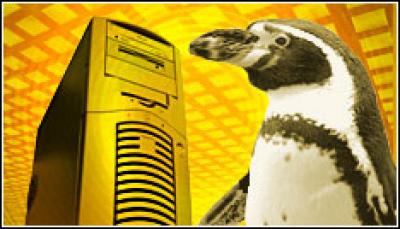Stallman: Free software Is Not About Saving Money

Companies turning to open source in the recession should know that free software is about much more, according to the GNU founder
Companies that turn to free or open source software during the downturn to save money may miss the whole point of non-proprietary code, according to free software advocate Richard Stallman.

While the economic downturn might be driving more people to use open source software – via hardware such as netbooks for example – free software is distinct from open source and about more than simply cutting costs, said Stallman at an event in Budapest, Hungary, organised by local organisation Open Source Farm.
“I won’t say no to more users, but of course if they only bought the thing to save them money then they have missed the main point, so what we need to do is show them that there are more important things,” the Free Software Foundation (FSF) president told EWeek Europe UK.
Stallman, who developed the GNU project in 1984, is keen to establish a clear distinction between term “open source” and “free software”. He eschews the term open source claiming it originated from a split in the community-developed software movement. The community developed model and operating system established by Stallman with GNU is seen as providing the basis for the Linux operating system and kernel developed by Linus Torvalds.
“As GNU plus Linux caught on we saw a disagreement within the community of users and developers. Some of us wanted freedom while others appreciated the same software but only for reasons of practical convenience – they didn’t think freedom was important – not even their own freedom,” he said.
While Stallman said that the recession driving interest in free software because of its often lower economic costs was “missing the point” he said he didn’t know if interest in the truly free community-developed applications and platforms he supports is also growing because of the global recession.
“I don’t know. All I can say is that people continue to join the Free Software Foundation at a high rate – we have more members now than we did a year ago,” he told Eweek Europe UK.
Stallman, who is a supporter and member of the US Green Party, was also questioned about the relationship between free software as he defines it and the environment. Asked if free software is more sustainable than proprietary equivalents, he said that there was no direct relationship between freedom and environmental impact but commented that have less power to act for themselves, if more power is put in vendors’ hands.
“Free software is under the control of its users. Proprietary software puts the users under the control of the developer. When the developer is a greedy corporation it is going to use that power to get what it wants from those users and in doing so it can push them into doing all sorts of harmful of unpleasant things. So in general I think you are going to have less environmental costs with free software but its an indirect result,” he said.
But Stallman did admit that the FSF has cooperated with environmental groups in the past to campaign against the impact of proprietary products. “It is a fact that Microsoft in particular, uses the power it has got to make people buy more hardware and junk their old hardware and this is why the US Green Party joined with the Free Software Foundation to condemn Windows Vista,” he said.
In an effort to win-over his Hungarian audience, Stallman kicked off his speech by establishing his definition of free software in the local language. “I would like to remind the translators that when I say “Free” it means “Szabad”. And when I mean “Ingyen” I will say “Gratis”,” he said.
Stallman, a folk dancing enthusiast, also went onto sing his Free Software Song which is based on the tune from a Bulgarian folk tune.
Although Stallman appears not be motivated by money and is vehemently opposed to what he sees as the profiteering from community developed software perpetrated by some open source organisations he held an auction at the end of his talk for a copy of his autobiography which eventually sold for 40,000 Forints (£115).
Stallman held another sale of other merchandise such as FSF badges at the end of the event which was sponsored by local companies such as open source consultancy ULX.
Read our full question and answer session with Richard Stallman